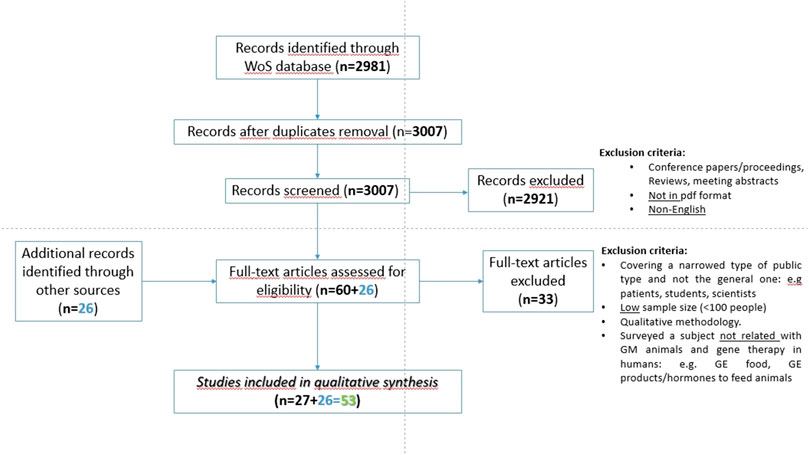The Genetic Revolution: CRISPR and Public Opinion
The Genetic Revolution: CRISPR and Public Opinion
It was a monumental shift in the world of genetics when CRISPR-Cas9 burst onto the scene in 2012, democratizing the ability to edit genomes with unprecedented precision and ease. This revolutionary technology, as detailed in a systematic review published by Frontiers, has not only transformed scientific research but has also sparked a profound societal and ethical debate.
The CRISPR Effect
CRISPR’s impact is far-reaching, influencing fields from biomedical research and clinical practice to food production. The ability to edit genes with such precision has opened doors to potential cures for genetic diseases, enhancements in agricultural yields, and even the controversial editing of human embryos.
However, this power comes with significant ethical concerns. As the review notes, the application of CRISPR to human embryos has reignited debates over genetic manipulation, reminiscent of past controversies surrounding genetic engineering.
Public Sentiment: A Mixed Bag
Over the past 35 years, surveys have painted a complex picture of public attitudes towards genetic modification. Generally, there is strong support for therapeutic gene editing in humans, particularly when it comes to treating or preventing diseases. Yet, opinions diverge sharply when it comes to germline modifications and genetic enhancements, often viewed with skepticism or outright opposition.
The review highlights that while many embrace the potential health benefits, the notion of “designer babies” raises red flags for both ethical and safety reasons. This echoes the sentiments expressed by scholars like Camporesi and Cavaliere, who have explored the ethical dimensions of CRISPR in their work (Camporesi and Cavaliere, 2016).
Responsible Innovation
The key takeaway from the review is the critical need for responsible research and innovation (RRI). Aligning technological advancements with societal values is paramount. As CRISPR technology continues to evolve, ensuring that it is used ethically and responsibly will require ongoing dialogue between scientists, policymakers, and the public.
Looking Ahead
The path forward for CRISPR and genetic engineering is one of both promise and caution. As noted by Nordberg et al., the regulatory landscape will need to adapt to keep pace with these rapid advancements (Nordberg et al., 2018).
In conclusion, while CRISPR offers a glimpse into a future where genetic diseases could be eradicated, it also challenges us to consider the ethical implications of such power. The conversation is far from over, and as society grapples with these issues, the voices of both advocates and critics will be crucial in shaping the future of genetic engineering.
More Articles
Getting licensed or staying ahead in your career can be a journey—but it doesn’t have to be overwhelming. Grab your favorite coffee or tea, take a moment to relax, and browse through our articles. Whether you’re just starting out or renewing your expertise, we’ve got tips, insights, and advice to keep you moving forward. Here’s to your success—one sip and one step at a time!
2407, 2023
New Mexico
Forgive the Cyber Dust
We will return shortly after upgrades are complete
2407, 2023
New Jersey
Forgive the Cyber Dust
We will return shortly after upgrades are complete
2407, 2023
New Hampshire
Forgive the Cyber Dust
We will return shortly after upgrades are complete
2407, 2023
Nevada
Forgive the Cyber Dust
We will return shortly after upgrades are complete
2407, 2023
Nebraska
Forgive the Cyber Dust
We will return shortly after upgrades are complete
2407, 2023
Montana
Forgive the Cyber Dust
We will return shortly after upgrades are complete
2407, 2023
Missouri
Forgive the Cyber Dust
We will return shortly after upgrades are complete
2407, 2023
Mississippi
Forgive the Cyber Dust
We will return shortly after upgrades are complete
2407, 2023
Minnesota
Forgive the Cyber Dust
We will return shortly after upgrades are complete
2407, 2023
Michigan
Forgive the Cyber Dust
We will return shortly after upgrades are complete
2407, 2023
Massachusetts
Forgive the Cyber Dust
We will return shortly after upgrades are complete
2407, 2023
Maryland
Forgive the Cyber Dust
We will return shortly after upgrades are complete
2407, 2023
Maine
Forgive the Cyber Dust
We will return shortly after upgrades are complete
2407, 2023
Louisiana
Forgive the Cyber Dust
We will return shortly after upgrades are complete
2407, 2023
Kentucky
Forgive the Cyber Dust
We will return shortly after upgrades are complete
2407, 2023
Kansas
Forgive the Cyber Dust
We will return shortly after upgrades are complete
2407, 2023
Iowa
Forgive the Cyber Dust
We will return shortly after upgrades are complete
2407, 2023
Indiana
Forgive the Cyber Dust
We will return shortly after upgrades are complete
2407, 2023
Illinois
Forgive the Cyber Dust
We will return shortly after upgrades are complete
2407, 2023
Idaho
Forgive the Cyber Dust
We will return shortly after upgrades are complete
2407, 2023
Hawaii
Forgive the Cyber Dust
We will return shortly after upgrades are complete
2407, 2023
Georgia
Forgive the Cyber Dust
We will return shortly after upgrades are complete
2407, 2023
Florida
Forgive the Cyber Dust
We will return shortly after upgrades are complete
2407, 2023
Delaware
Forgive the Cyber Dust
We will return shortly after upgrades are complete
2407, 2023








